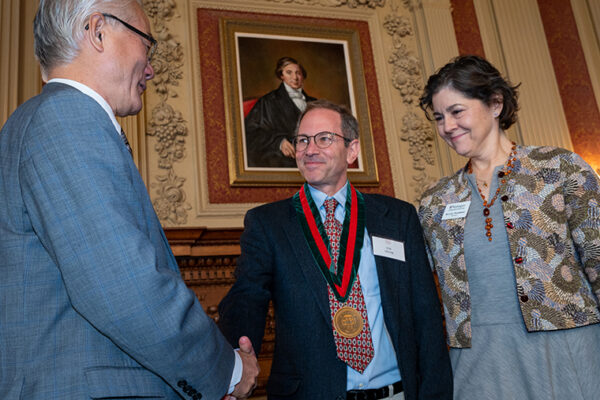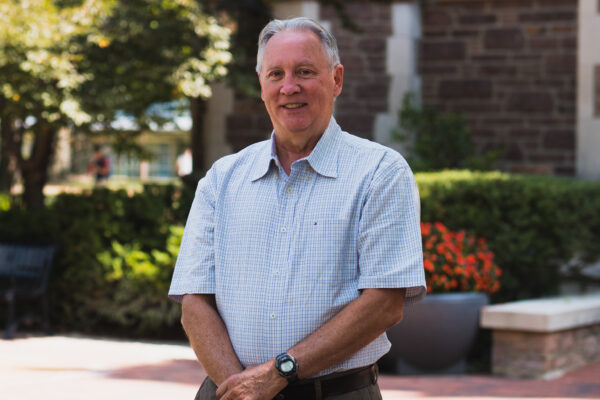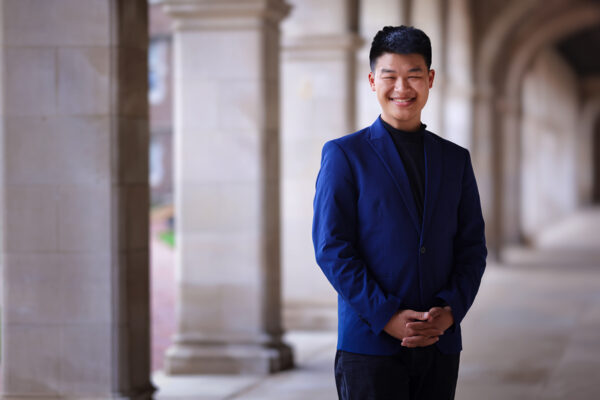Parai wins U.S. Department of Energy grant
Rita Parai, assistant professor of earth and planetary sciences in Arts & Sciences, won a $450,000 grant from the U.S. Department of Energy’s National Nuclear Security Administration.
Herzog installed as Viktor Hamburger Distinguished Professor
Erik Herzog, a professor of biology, was installed as the Viktor Hamburger Distinguished Professor in Arts & Sciences. His talk was titled “For Whom the Bells Toll: Networked Circadian Clocks and Clock Watchers.”
Barbara Liebmann, longtime staff member, 66
Barbara Liebmann, who served in numerous staff positions during a long career at Washington University in St. Louis, died Nov. 8, 2022, of pancreatic cancer. She was 66.
Hatoum wins NIH award
Alexander Hatoum, a research assistant professor of psychological and brain sciences in Arts & Sciences, won a five-year $897,120 award from the National Institutes of Health (NIH)’s National Institute on Alcohol Abuse and Alcoholism.
Thirsty wheat needed new water management strategy in ancient China
Research from the laboratory of archaeologist Xinyi Liu in Arts & Sciences shows that a practice of purposeful water management, or irrigation, was adopted to help cultivate wheat in northern China about 4,000 years ago.
Kranz laboratory biologists report structure of heme transporter
In Nature Communications, researchers in the laboratory of Robert Kranz, professor of biology in Arts & Sciences, shared a new cryo-EM structure and proposed some common mechanisms of heme trafficking in the cell.
Researchers bring Body U to schools with HHS grant
The U.S. Department of Health and Human Services has awarded researchers Ellen Fitzsimmons-Craft and Denise Wilfley a grant to help improve outcomes for eating disorders in adolescent girls.
Senior Miao elected to College Democrats board
Ranen Miao, a senior studying political science and sociology in Arts & Sciences, was elected to serve as national director of communications for the College Democrats of America.
Polarized X-rays reveal shape, orientation of extremely hot matter around black hole
New measurements from Cygnus X-1, reported Nov. 3 in the journal Science, represent the first observations of a mass-accreting black hole from the Imaging X-Ray Polarimetry Explorer (IXPE) mission, an international collaboration between NASA and the Italian Space Agency. The lead author of the new study is physicist Henric Krawczynski in Arts & Sciences.
Worsening racial inequality in home appraisals detailed in new report
Using data from the newly released Uniform Appraisal Dataset, which includes 47.3 million home appraisals conducted over the last decade, WashU’s Elizabeth Korver-Glenn and Junia Howell of the University of Illinois Chicago demonstrate stark inequalities in appraisal values between homes in white neighborhoods and communities of color.
View More Stories









